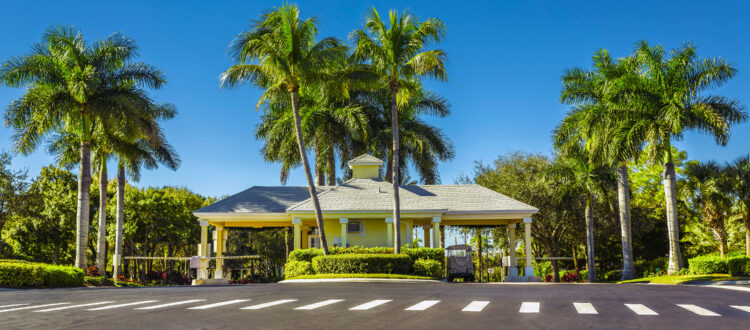The Superiority of Asphalt Rejuvenation Over Sealcoating
When it comes to maintaining and extending the lifespan of pavements, two popular treatments often come into play: seal coating and asphalt rejuvenation. While both methods aim to protect and enhance the performance of asphalt surfaces, asphalt rejuvenation stands out as a superior option for long-term benefits, sustainability, and overall pavement health. In this blog post, we will explore the key differences between seal coating and asphalt rejuvenation, and why rejuvenation should be your go-to choice for pavement maintenance.
What is Sealcoating?
Sealcoating is a protective coating applied over the surface of asphalt pavements. It consists of a mixture of asphalt emulsion, water, mineral fillers, and other additives. The primary purpose of seal coating is to provide a protective barrier against the damaging effects of UV rays, water, oil spills, and other environmental factors. This treatment enhances the appearance of the pavement by restoring its original dark black color and provides a fresh, renewed look.
Benefits of Sealcoating:
1 Protection: Sealcoating shields the asphalt surface from harmful UV rays and oxidation, which can cause the pavement to become brittle and crack over time.
2 Water Resistance: It helps to seal small cracks and prevent water penetration, reducing the risk of potholes and other water-related damages.
3 Aesthetic Appeal: Sealcoating rejuvenates the appearance of the pavement, giving it a smooth and uniform black finish.
4 Cost-Effective: Applying a seal coat is a relatively low-cost maintenance option that can extend the life of the pavement.
Limitations of Sealcoating:
1 Short Lifespan: The protective layer provided by seal coating typically lasts 2-4 years, depending on traffic and environmental conditions.
2 Surface Treatment: Sealcoating primarily protects the surface and does not address underlying issues such as structural damage or deep cracks.
What is Asphalt Rejuvenation?
Asphalt rejuvenation is a treatment designed to restore the original properties of the asphalt binder within the pavement. Rejuvenators are typically composed of maltenes and oils that penetrate the asphalt surface, rejuvenating the aged and oxidized binder. This process helps to restore the flexibility and durability of the asphalt, extending its lifespan and improving overall performance.
At Total Asphalt Rejuvenation, we use Veritas Green™— an advanced asphalt rejuvenator designed to restore the essential properties of aged asphalt with unmatched efficiency and environmental responsibility. Veritas Green is a polymer-enhanced fog seal that utilizes a Tall Oil Fatty Acid (TOFA) base, a natural and renewable resource derived from coniferous pine trees. Veritas Green stands out for its ability to penetrate deeply into the asphalt binder—up to 1 inch—without the need for solvents, making it both highly effective and eco-friendly.
Benefits of Asphalt Rejuvenation:
1 Restores Flexibility: Rejuvenators penetrate deep into the asphalt, softening and rejuvenating the aged binder, which helps to restore the pavement’s flexibility and resistance to cracking.
2 Extends Pavement Life: By addressing the underlying issues of binder aging and oxidation, rejuvenation treatments can significantly extend the lifespan of the pavement.
3 Improved Durability: Rejuvenation treatments enhance the pavement’s ability to withstand traffic loads and environmental stresses, reducing the likelihood of future damage.
4 Environmentally Friendly: Many rejuvenators are made from bio-based materials, making them a more sustainable option for pavement maintenance.
5 Long-Term Savings: The extended lifespan and reduced need for frequent maintenance result in long-term cost savings.
6 Aesthetic Appeal: Our rejuvenation formula comes in black, ensuring that your pavement retains its deep, rich color, enhancing its visual appeal.
Why Choose Asphalt Rejuvenation Over Sealcoating?
1. Long-Term Benefits: While seal coating provides a short-term protective layer, asphalt rejuvenation offers long-term benefits by addressing the root cause of asphalt deterioration. Rejuvenation treatments penetrate deep into the asphalt, restoring the flexibility and durability of the binder, which results in a significantly extended pavement lifespan.
2. Enhanced Durability: Rejuvenated asphalt can better withstand heavy traffic loads and harsh environmental conditions. This improved durability means fewer repairs and less frequent maintenance, saving both time and money in the long run.
3. Sustainable Choice: Asphalt rejuvenation is environmentally friendly. Many rejuvenators are made from bio-based materials, reducing the environmental impact compared to traditional petroleum-based seal coating products. By extending the life of the pavement, rejuvenation also reduces the need for new materials and the associated environmental footprint.
4. Cost-Effective Over Time: With rejuvenation, you can avoid frequent reapplications and the extensive repairs that untreated underlying issues might necessitate.
5. Comprehensive Treatment: Sealcoating mainly provides surface-level protection, whereas asphalt rejuvenation penetrates and treats the pavement from within. This comprehensive approach addresses both the surface and underlying layers, ensuring a more thorough and effective maintenance solution.
6. Enhanced Aesthetic Appeal: Our asphalt rejuvenation formula is available in black, which not only restores but also enhances the visual appeal of your pavement. This ensures that your pavement retains its deep, rich color, giving it a fresh and well-maintained look.
While both seal coating and asphalt rejuvenation have their roles in pavement maintenance, asphalt rejuvenation emerges as the superior choice for long-term benefits, enhanced durability, sustainability, and overall cost-effectiveness. By focusing on restoring the essential properties of the asphalt binder, rejuvenation treatments provide a more comprehensive solution that significantly extends the life and performance of your pavement. Choosing asphalt rejuvenation today can lead to smoother, more durable, and longer-lasting pavements tomorrow.
